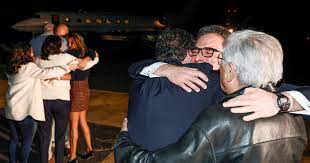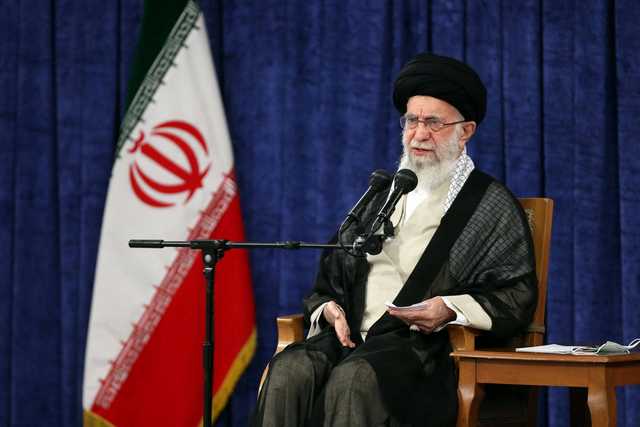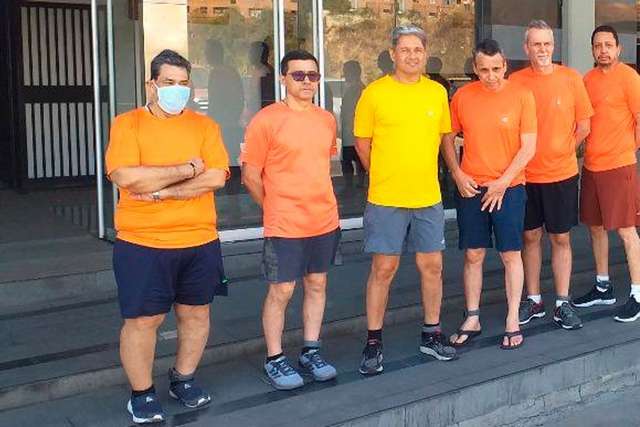
In a controversial swap deal, five Americans who have been locked up in Iran on baseless charges and held for political leverage, have been set free in exchange for the release of not only an identical number of Iranians imprisoned in US jails, but also a whopping $6bn Iranian funds held in South Korea.
The money had been withheld but as part of the negotiations it was permitted to be sent to banks in the Qatari capital Doha, the country acting as mediator between the two nations.
Discussions have been taking place since February of this year with President Joe Biden seemingly making some extremely difficult decisions to allow the swap to take place, ultimately putting the lives of American citizens above politics.
US citizens politically held
The Americans who had been held were all widely regarded as hostages, whilst the Iranians had mainly been charged with violating US sanctions.
The first indication that something might finally be happening occurred in August when the prisoners were moved from the notorious Evin jail to a safe house in Tehran. The five included four men and one woman. Two have asked to remain anonymous, but the other three are:
Morad Tahbaz who was arrested back in 2018 simply for carrying out conservationist work, saw the use of cameras to track endangered Asiatic cheetahs, but was found guilty and sentenced to ten years for spying.
Siamak Namazi is a Dubai-based oil executive who received a ten-year sentence in 2015 accused of “co-operating with a foreign enemy.” His elderly father, Baquer, was allowed to visit him in 2016 only to be detained himself. He was allowed to leave only last year, due to medical reasons.
Emad Shargi, also held since 2018 whilst working for an Iranian venture capital fund. He too faced ten years locked away. His daughters said in April 2021 that he was “trapped in terrible conditions” in prison and that he had only been allowed a couple of brief, monitored phone calls.
“Hostages” joy at release
Mr Namazi who it has been alleged has been repeatedly tortured during his detainment said in a statement: “I would not be free today, if it wasn’t for all of you who didn’t allow the world to forget me.
From the bottom of my heart, thank you for being my voice when I could not speak for myself and for making sure I was heard when I mustered the strength to scream from behind the impenetrable walls.”
He continued to spell out the need for the free world to clamp down on those who choose to use human lives as bargaining chips, and addressing Mr Biden personally he said: “Mr. President, the tale of my eight-year captivity is ultimately a stark reminder that once our citizens are seized by a rogue state, we are left with no good options.”
Various crimes committed
The Iranians who were released had been imprisoned in the US for non-violent crimes. They were granted clemency as part of this swap and not all of them are expected to return to Iran. They have been named as: Reza Sarhangpour, Kambiz Attar Kashani, Kaveh Lotfolah Afrasiabi, Mehrdad Moein Ansari and Amin Hasanzadeh.
Their crimes included: taking part in a scheme to obtain military-sensitive parts for Iran, and attempting to profit from a far-reaching, extensive scheme to evade US sanctions. Conspiring to illegally export US goods and technology to Iran through Canada and the United Arab Emirates. The theft and distribution of sensitive technical data to connections of the Iranian military.
Disagreement on funds usage
The $6bn which was paid by South Korea to Iran many years ago for oil, was subsequently frozen. It is being claimed that part of the agreed deal is for it to be only used for humanitarian purposes and is limited to food, medicine, medical devices and agricultural products.
That is the line coming out from US officials, who added that none of the funds will go directly to Iranian companies or entities and if Iran tries to divert the money, the US will take action to “lock up” the funds.
However, Iranian officials have repeatedly declared they will spend their money as they wish.
Distrust still very much in evidence
Qatar, along with Switzerland have acted as go-betweens for the US and Iran since 2015. At that time a landmark nuclear accord known as the Joint Comprehensive Plan of Action was put in place, but that was exited by the Trump administration in 2018.
As a result distrust between Washington and Tehran, remains very high, despite this swap deal.






0 Comments